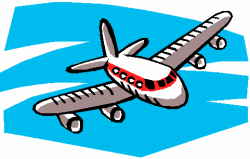
КАТЕГОРИИ:
Архитектура-(3434)Астрономия-(809)Биология-(7483)Биотехнологии-(1457)Военное дело-(14632)Высокие технологии-(1363)География-(913)Геология-(1438)Государство-(451)Демография-(1065)Дом-(47672)Журналистика и СМИ-(912)Изобретательство-(14524)Иностранные языки-(4268)Информатика-(17799)Искусство-(1338)История-(13644)Компьютеры-(11121)Косметика-(55)Кулинария-(373)Культура-(8427)Лингвистика-(374)Литература-(1642)Маркетинг-(23702)Математика-(16968)Машиностроение-(1700)Медицина-(12668)Менеджмент-(24684)Механика-(15423)Науковедение-(506)Образование-(11852)Охрана труда-(3308)Педагогика-(5571)Полиграфия-(1312)Политика-(7869)Право-(5454)Приборостроение-(1369)Программирование-(2801)Производство-(97182)Промышленность-(8706)Психология-(18388)Религия-(3217)Связь-(10668)Сельское хозяйство-(299)Социология-(6455)Спорт-(42831)Строительство-(4793)Торговля-(5050)Транспорт-(2929)Туризм-(1568)Физика-(3942)Философия-(17015)Финансы-(26596)Химия-(22929)Экология-(12095)Экономика-(9961)Электроника-(8441)Электротехника-(4623)Энергетика-(12629)Юриспруденция-(1492)Ядерная техника-(1748)
Find sentences which correspond to the texts. 1. Big city airports are busy, exiting places
1. Big city airports are busy, exiting places.
2. The smallest airports resemble small cities
3. Thousands of people jam the arrival area
4. Airports are usually located away from the centres of the cities they serve.
5. In the airport terminal building no conveniences for passengers are provided.
| Read the texts, translate and do the tasks |
| AIRPORT FORMALITIES |
According to the international standards passengers are to arrive at the airport two hours before departure time on international flights and one hour on domestic flights. The reason is that passengers should have enough time to complete all necessary airport formalities.
At the airport passengers should check the time of the flight to make sure that it is not delayed, cancelled or altered. This information is available on the flight information display or at the inquiry office.
Passengers are to fill in customs declaration in one of international languages or in the language of the country they depart from. They go to the Customs for an examination of their luggage. In some cases the Customs officer may ask you to open your bags and suitcases for inspection. This is one in order to prevent smuggling. After you are through with all Customs formalities the Customs officer puts a stamp on your Customs declaration, or on each piece of luggage, or chalks it off. The particular procedure depends on the country of departure.

|
Most airlines have at least two classes of travel: first or business class and economy or tourist class. Business class is more expensive, while economy class is cheaper. Each passenger above two years of age has a free luggage allowance. As a rule, this limit is 20 kg for economy class passengers and 30 kg for business class passengers. Excess luggage must be paid for, but for some articles that can be carried free of charge, such as baby’s food, articles of baby’s care, baby’s prams, wheelchairs of disable passengers, and some personal effects.
Each passenger is given a boarding pass with his or her seat number. Passengers are asked if they want to sit by the window, and in the smoking or non-smoking area. A boarding pass is to be shown at the departure gate and to the hostess when boarding the plane.
Finally, passengers proceed to the passport control area. Passport control officers will check your passport and vise and put a stamp on them.
Customs, checking-in and passport formalities are more or less the same in all countries.
| TICKETING AND CHECK-IN |
«««««««««
 ««««««««««
««««««««««
|
Each one of your pieces of baggage will be tagged with a baggage tag with a serial number and the final destination of your baggage. The other piece of the baggage tag is sticked to the cover of your ticket. After the check-in you will be given a boarding pass. You should keep this boarding pass at hand and present it together with the other documents to the passport and customs control authorities, until you board the plane.
Answer the following questions:
1. When do passengers have to arrive at the airport?
2. What should passengers do at the airport?
3. What language are passengers to fill in customs declaration in?
4. Why passengers go to the Customs?
5. What classes of travel do most airlines have?
6. What is the difference between business and economy classes?
7. What is each passenger given?
8. What do you have to do the day before your journey?
9. What will happen if you fail the arrive at the check-in in due time?
|
|
Дата добавления: 2014-11-29; Просмотров: 589; Нарушение авторских прав?; Мы поможем в написании вашей работы!